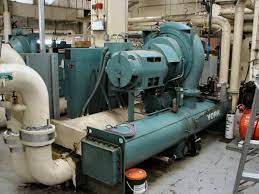Air cooled chillers vs. Water cooled chillers: which one works better
Chillers play an extremely important role in my industry. They help these industries keep medical machines running consistently without any disturbances. Chillers have the capacity to keep the milk fresh until it is distributed in the markets. Chillers can also be utilised for managing the pharmaceutical industry, the meat and poultry industry, and also in cleaning industry processing. Are you also looking for a perfect chiller for your small business to make it viable? There are many things that you can decide but one of them is whether you need an air-cooled chiller or water-cooled chiller. For that purpose, this blog can help you in your research. Mentioned below are the some advantages and disadvantages of water and air cooled chillers.
ADVANTAGES
Longer Lifespan
Generally, water-cooled chillers don’t need any replacements as soon as air cooled chillers do. They are not exposed to any outdoor elements like rain, snow, ice, and heat, which is more likely to make them less vulnerable.
Quiet Operation
In general air-cooled chillers are constructed with ducts and vents which can create loud noises, however, water-cooled chillers can operate without making much noise. There is a constant flow of water through the system which will not result in the noisy environment. These contractions are more likely to appear in an air-cooled chiller. This kind of quiet operation is required in the environments such as hospitals and schools, where you cannot play loud noise because it can be a disturbance to the people.
Energy Efficiency
The coefficient of the film resides somewhere between 10 to 100 times in water-cooled chillers than in air-cooled chillers which makes it ultimately better. It also means that water-cooled chillers can transfer heat efficiently in larger amounts. This can result in savings made on energy costs.
No Open Space required
Air-cooled chillers needed to be in an open space, they were required to stay outdoors so that they could get an adequate amount of fresh air. However, the water-cooled chillers can also stay inside the buildings, which makes them an ideal option for companies that don't have access to enough outdoor space.
Safety
In general, water-cooled chillers are more likely to use water as a refrigerant instead of using many harmful chemicals. This proves them to be a little safer for people who are more likely to be around while using the products.
DISADVANTAGES
Higher Cost
Air-cooled chillers should be cheaper in cost as compared to any other chiller such as water-cooled chillers. The reason being that they do not need any internal parts such as cooling towers or condenser pumps. There are many brands available in the market that believe the larger the lifespan of a machine and energy saving costs, more chillers are worthy of a high investment that a person made while buying it.
More Maintenance
Water-cooled chillers are likely to have more parts, therefore, they need more maintenance. Companies are allowed to prepare to pay for periodic inspections. Also, the water treatment can be done to remove impurities, and for regular cleaning of the internal parts of a chiller. More maintenance can also mean that it will have more downtime which means you cannot use it for that particular time. If a chiller has more parts, the number of things that can go wrong with the machine are also higher. That means you would need to repair water-cooled chillers more as compared to air-cooled chillers.



Comments
Post a Comment